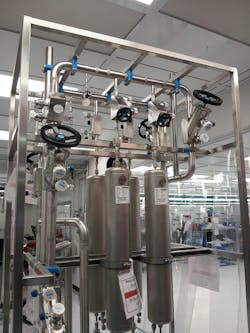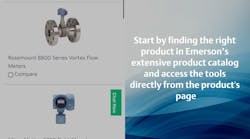By HPi Verification Services
Despite being synonymous with regulation and stringent HSE policies, many global oil and gas companies, particularly those entering the industry in Europe, are not widely aware of the requirements of Pressure Equipment Directive (PED) certification, and, importantly, the questions they should be asking in relation to it. Amid the plethora of regulation and stringent standards that oil and gas projects must adhere to, it is not just European manufacturers who are affected. International companies expanding into servicing oil and gas operations in Europe also need to know where to begin, and what questions to ask, in order to effectively assess what is required to meet PED compliance.
Pressure Equipment Directive Background
PED 97/23/EC, soon to become 2014/68/EU, came into force in 1997. The PED provides guidelines for conformity rather than a set of strict rules, and sets out standards for the design, manufacture, testing and conformity assessment of pressure equipment in the European marketplace. In June 2015, the requirements of PED certification began changing for the first time in 17 years, impacting manufacturers, importers and distributers of pressure equipment. Looking ahead to July 2016 when the PED is updated to become 2014/68/EU, the requirement becomes even more stringent. Essentially, the changes to the directive aim to clarify and streamline the rules for getting pressure equipment to the market, particularly in the face of increasing competition from equipment with fraudulent certification.
What the Pressure Equipment Directive Covers
The changes to the regulation affect a wide range of factors, from the classification of fluids, to the obligations of both manufacturers and notified bodies. For example, it will no longer be the manufacturer only who has a requirement to ensure that only safe and compliant products reach the market, it will encompass the entire supply chain. Additionally, if an importer or distributer modifies the equipment in any way, or places the equipment on the market under their own name, they are now considered a "manufacturer" by the regulation, and are subject to the obligations therein. All of this means that the net of responsible parties will widen, ensuring that all parties play a key part in ensuring that only safe, certified equipment reaches the end-user.
The changes also evolve the safety philosophy of the directive. Whilst there are no changes to the actual safety requirements themselves, manufacturers must now analyse the risks of pressure equipment and not just the hazards, ensuring that every aspect of safety is considered and evaluated.
READ ALSO: Pressure Measurement Life Lessons
Getting Started with the Pressure Equipment Directive
Experts at HPi VS have been working with PED since before the original regulation came into force, obtaining an in-depth and detailed knowledge of the requirements of the directive. When working with customers, our team has found that more often than not, knowing which questions to ask to begin the process is often one of the first and most challenging barriers to achieving compliance, especially when new to the region. This is where working with organizations that can offer step by step, accurate guidance gained over years of experience, can help companies to navigate the regulation and ensure they have all the necessary steps in place while mitigating the risks of non-compliance. (For example, the recently launched PED online training portal, training.eucertification.com, provides access to a bank of information relating to the directive, helping companies access the important details they need and steering them toward certification.)
There are a number of exclusions to the PED, largely regarding equipment already regulated in equivalent or more stringent European Commission (EC) directives.
Looking Beyond Regulation
In a period of the lowest oil prices in almost a decade, demonstrating transparency and good governance has never been more crucial in order to remain competitive in the market, especially in the wake of events such as the Deep Water Horizon disaster. It, therefore, falls to the certification bodies to play a key role in enabling those in the industry to recognize how certification schemes can help companies to improve standards and efficiencies, maintain value through protecting their reputation, and help to continue positive, trustworthy relationships with customers and wider stakeholders.
Good governance goes beyond a ‘tick box’ approach, and demonstrating not just compliance but a thorough understanding of the regulations can provide reassurance that every measurable step has been taken to guarantee the utmost standards in safety and quality. HPi VS adopts a more thorough approach than just the standard checklist, recording not only whether or not a feature is compliant, but also how it reaches the required standard. With this additional information readily to hand, operators can easily provide evidence to prove compliance.
With increasing scrutiny across every stage of complex, multi-faceted operations, ensuring that pressure equipment meets standards and is documented robustly is not only essential for compliance, but for demonstrating a commitment to transparency and good governance. Certification bodies, therefore, have an important role to play in empowering companies to understand and achieve requirements smoothly and efficiently. By doing so, certification schemes can help to improve operational standards and efficiencies, drive value through improved reputation, and help to improve relationships with customers and wider stakeholder networks.
HPi Verification Services is a Notified Body. The company may issue certificates for products which require a CE mark. To earn this status, HPi VS operates to a code of conduct and accredited quality system that is reviewed by the British Government.
HPi VS staff have been employed as experts by the EU Commission, as their representatives for several missions to assess EU applicant nations’ preparations for compliance with CE marking legislation and to train government officials and captains of industry.


